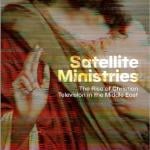Paul speaks in Romans 4:4-8 theoretically about “works” and he does so in such a way that “faith” becomes theoretically opposed to “works.” This is important for understanding the New Perspective, and what Paul does here is compare a “reckoning” system with a “grace” system.
Basic text:
Now to one who works, wages are not reckoned as a gift but as something due. But to one who without works trusts him who justifies the ungodly, such faith is reckoned as righteousness.
Here’s the basic idea: the works system is a merit-based or reckoning system. It creates act and obligation: you do right, God must reward if you do right. The reckoning system, found in Exodus 23:7, has been overturned because all reckoning has now taken place in Christ, through his death [and resurrection], and that is why Rom 3:21-26 is so dadgummed important in Romans. It is there that the justice system got its final blow and was dealt with once and for all.
Paul, however, wants to jump entirely out of a sytem of reckoning. Notice in Rom 4:4 Paul says that in the reckoning system obligation or reckoning is established as debt but not as “gift.” Now that word “gift” is the secret to Paul’s theology.
Thus, for Paul, to trust in God (to abandon “works” and the “reckoning” system) creates a “gift” society wherein “reckoning” (Paul does use this term in v. 5) is really a fiction. It is not that our “faith” puts God under obligation but that faith, instead of works, is what creates a right-standing with God and God making things right. It is a “gift” instead of a “reckoning” system.
David exemplifies this: David didn’t do works to get forgiveness; he trusted in God’s grace to forgive. That made him “blessed” (a word that speaks of a condition).











